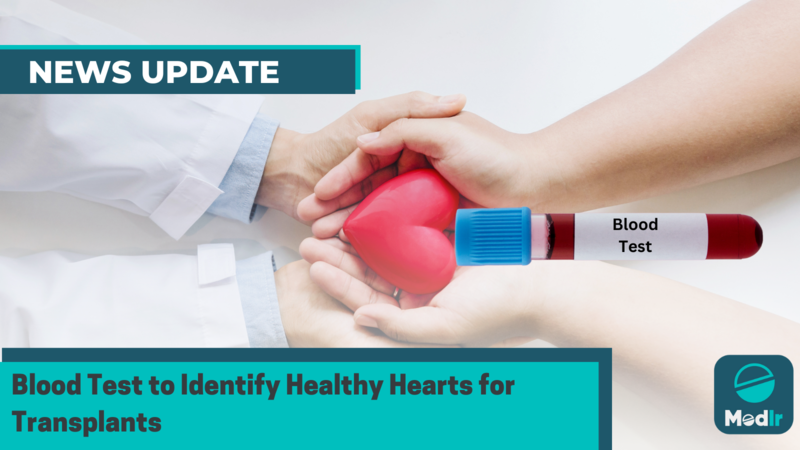Blood Test to Identify Healthy Hearts for Transplants
Written by Shaveta Arora
Newcastle University's groundbreaking research seeks to uncover 'zombie cell signature' in blood to identify eligible hearts for transplant, revolutionizing heart transplantation.

Newcastle University researchers are developing a test that could broaden the pool of available hearts for heart transplants. Currently, medical professionals often rule out hearts from donors over 65, considering them unsuitable. However, it is possible that the age of the heart does not accurately indicate its health.
This innovative research has the potential to significantly increase the pool of available hearts. Media reports indicate an estimated demand of 50,000 donated cadaveric hearts in India. The British Heart Foundation (BHF) funds this study, which was presented at the British Cardiovascular Society conference and centers on 'zombie cells' discovered in individuals with heart disease. These malfunctioning cells release molecules that can affect neighboring cells, leading to inflammation and scar tissue formation in the heart muscle.
Dr. Gavin Richardson, Senior Lecturer at Newcastle University, is leading the research team with the aim of uncovering the 'zombie cell signature' in the blood. They hold the belief that by developing a blood test for this signature, it could effectively identify healthy hearts from potential older donors that are suitable for transplantation.
The researchers have set their sights on investigating the 'zombie' cell signature further by utilizing blood and tissue samples from biobanks. Through this investigation, they hope to enhance transplant outcomes and improve the success rate of heart transplants.
Dr Richardson said -
“Our work sheds light on the clues that ‘zombie’ cells leave in the body. We are confident that these clues can help us identify hearts from ineligible donors that could be used for transplantation.”